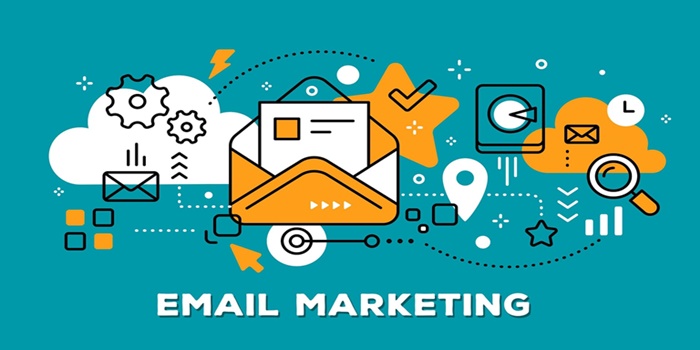In this post, we talked about the meaning of email, marketing strategies, types. Furthermore, we also discussed the meaning of email marketing strategies, and its effect.
Definition
Electronic mail, commonly shortened to “email,” is a communication method that uses electronic devices to deliver messages across computer networks. “Email” refers to both the delivery system and individual messages that are sent and received.
A marketing strategy is an overview of how a business or organization will articulate its value intention to its customers. Generally, a marketing strategy outlines business goals, target market, buyer personas, competitors, and value for customers.
Email marketing is when a business uses email to communicate and connect with their customer base.
An email marketing strategy is your roadmap to planning and executive email marketing campaign. It’s a step-by-step guide to what you want to accomplish and how you expect to accomplish it.
Effective Email Marketing Strategies
Determine objectives
The first part of any strategy is to determine what it is you want to achieve. Why are you engaging in email marketing? What are your goals? Are they measurable and achievable? How does email marketing fit in with the rest of your marketing strategy?
Identify the target audience
Emails that are sent to a general audience are less successful than those that target a specific type of customer. You may also want to identify your audience by various demographic factors, such as age, gender, income, or education level. The more targeted your audience, the more you can personalize the sending and generate a higher response.
Identify the posting list
With the target audience identified, it’s time to identify one or more mailing lists that match that audience.
You may even want to further part the mailing list so you can personalize your postings for different types of targeted clients.
Determine the types of emails to send
It’s also important to determine the type of emails you’d like to send.
Depending on your purposes, you may want to send a welcome email (to new customers or subscribers), a promotional or sale email, an unrestrained cart email, or a new product notice email.
Determine the content and offer
Finally, you need to determine the content to include in the posting. You also want to determine what type of offer you want to make to receivers. Is this a general sale or do you want to offer a specific dollars-off or percentage discount?
Moreover, don’t forget the call to action and ordering device, as well as images, countdown timers, and other key elements.
Design your emails
A good email marketing strategy is incomplete without an email design. Sending a plain text email works, but an HTML email has more appeal to persuade the customer to click on the CTA.
Include a catchy email signature
An email signature makes your emails look professional, helping you build trust, connect with your audience, and show subscribers a glimpse of your brand’s personality.
Segment your audience
Since your subscribers differ in levels of readiness to convert, segment them based on their interests, unique characteristics, etc., to send appropriate content to the right people.
Optimize for mobile
Based on statistics, 42.3% of users will delete emails that are not optimized for mobile, and that’s significant conversion and sales opportunities down the drain.
Make your email campaigns mobile-friendly to provide an excellent user experience for your subscribers and increase engagement.
Track the right metrics
Identify your metrics to assess your email marketing campaigns’ performance and uncover areas of improvement.
A/B Testing
Don’t send emails without split testing. You need to make sure the email version you want works. Some email marketing services or tools like Mailmunch provide A/B testing tools so that users can test the landing pages and emails before finalizing the version.
Add visuals
According to HubSpot, 65%of users prefer emails that contain mostly images vs. 35% who prefer text mostly. Constant Contact surveyed over 2 million customer emails to find out if there was a correlation between the number of images in an email and audience engagement. They found that – With some industry-specific exceptions — emails with three or fewer images and approximately 20 lines of text.
Focus on the best time to send emails
One of the most common mistakes amateurs do? Sending an email at the worst time.
What good is an email if you send it late at night when your customer is sleeping? Focusing on the timings matters the most. result in the highest click-through rates. A customer’s loyalty towards your brand increases once you reach them at the right time.
Conclusion: An email marketing strategy is your step-by-step guide to conducting effective email campaigns. Your strategy helps in planning your campaigns, setting goals, implementing postings, and measuring results. Writing an email subject line is important because it can increase the success of your email communication. A recipient may see your subject line and any information it contains when they receive your email.


